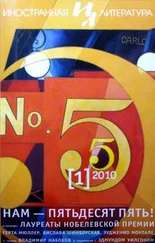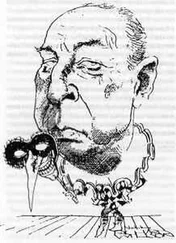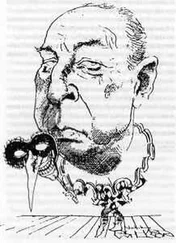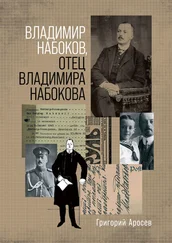Владимир Набоков - Vladimir Nabokov Pnin
Здесь есть возможность читать онлайн «Владимир Набоков - Vladimir Nabokov Pnin» весь текст электронной книги совершенно бесплатно (целиком полную версию без сокращений). В некоторых случаях можно слушать аудио, скачать через торрент в формате fb2 и присутствует краткое содержание. Жанр: Классическая проза, на английском языке. Описание произведения, (предисловие) а так же отзывы посетителей доступны на портале библиотеки ЛибКат.
- Название:Vladimir Nabokov Pnin
- Автор:
- Жанр:
- Год:неизвестен
- ISBN:нет данных
- Рейтинг книги:4 / 5. Голосов: 2
-
Избранное:Добавить в избранное
- Отзывы:
-
Ваша оценка:
- 80
- 1
- 2
- 3
- 4
- 5
Vladimir Nabokov Pnin: краткое содержание, описание и аннотация
Предлагаем к чтению аннотацию, описание, краткое содержание или предисловие (зависит от того, что написал сам автор книги «Vladimir Nabokov Pnin»). Если вы не нашли необходимую информацию о книге — напишите в комментариях, мы постараемся отыскать её.
Vladimir Nabokov Pnin — читать онлайн бесплатно полную книгу (весь текст) целиком
Ниже представлен текст книги, разбитый по страницам. Система сохранения места последней прочитанной страницы, позволяет с удобством читать онлайн бесплатно книгу «Vladimir Nabokov Pnin», без необходимости каждый раз заново искать на чём Вы остановились. Поставьте закладку, и сможете в любой момент перейти на страницу, на которой закончили чтение.
Интервал:
Закладка:
A few days later she sent me those poems; a fair sample of her production is the kind of stuff that йmigrй rhymsterettes wrote after Akhmatova: lackadaisical little lyrics that tiptoed in more or less anapaestic trimeter and sat down rather heavily with a wistful sigh: Samotsvйtov krуme ochйy Net u menyб nikakнh, No est' rуza eshchу nezhnйy Rуzovпh gub moнh.
I yъnosha tнhiy skazбl: 'Vashe sйrdtse vsegу nezhnйy...'
I yб opustнla glazб...
I have marked the stress accents, and transliterated the Russian with the usual understanding that u is pronounced like a short 'oo', i like a short 'ee', and zh like a French 'j'. Such incomplete rhymes as skazal--glaza were considered very elegant. Note also the erotic undercurrents and cour d'amour implications. A prose translation would go: 'No jewels, save my eyes, do I own, but I have a rose which is even softer than my rosy lips. And a quiet youth said: "There is nothing softer than your heart." And I lowered my gaze....
I wrote back telling Liza that her poems were bad and she ought to stop composing. Sometime later I saw her in another cafй, sitting at a long table, abloom and ablaze among a dozen young Russian poets. She kept her sapphire glance on me with a mocking and mysterious persistence. We talked. I suggested she let me see those poems again in some quieter place. She did. I told her they struck me as being even worse than they had seemed at the first reading. She lived in the cheapest room of a decadent little hotel with no bath and a pair of twittering young Englishmen for neighbours.
Poor Liza! She had of course her artistic moments when she would stop, entranced, on a May night in a squalid street to admire--nay, to adore--the motley remains of an old poster on a wet black wall in the light of a street lamp, and the translucent green of linden leaves where they drooped next to the lamp, but she was one of those women who combine healthy good looks with hysterical sloppiness; lyrical outbursts with a very practical and very commonplace mind; a vile temper with sentimentality; and languorous surrender with a robust capacity for sending people on wild-goose errands. In the result of emotions and in the course of events, the narration of which would be of no public interest whatsoever, Liza swallowed a handful of sleeping pills. As she tumbled into unconsciousness she knocked over an open bottle of the deep-red ink which she used to write down her verses, and that bright trickle coming from under her door was noticed by Chris and Lew just in time to have her saved.
I had not seen her for a fortnight after that contretemps when, on the eve of my leaving for Switzerland and Germany, she waylaid me in the little garden at the end of my street, looking svelte and strange in a charming new dress as dove-grey as Paris, and wearing a really enchanting new hat with a blue bird's wing, and handed me a folded paper. 'I want a last piece of advice from you,' said Liza in what the French call a 'white' voice. 'This is an offer of marriage that I have received. I shall wait till midnight. If I don't hear from you, I shall accept it.' She hailed a taxi and was gone.
The letter has by chance remained among my papers. Here it is: 'I am afraid you will be pained by my confession, my dear Lise' (the writer, though using Russian, called her throughout by this French form of her name, in order, I presume, to avoid both the too familiar 'Liza' and the too formal 'Elizaveta Innokentievna'). 'It is always painful for a sensitive (chutkiy) person to see another in an awkward position. And I am definitely in an awkward position.
'You, Lise, are surrounded by poets, scientists, artists, dandies. The celebrated painter who made your portrait last year is now, it is said, drinking himself to death (govoryat, spilsya) in the wilds of Massachusetts. Rumour proclaims many other things. And here I am, daring to write to you.
'I am not handsome, I am not interesting, I am not talented. I am not even rich. But Lise, I offer you everything I have, to the last blood corpuscle, to the last tear, everything. And, believe me, this is more than any genius can offer you because a genius needs to keep so much in store, and thus cannot offer you the whole of himself as I do. I may not achieve happiness, but I know I shall do everything to make you happy. I want you to write poems. I want you to go on with your psychotherapeutic research--in which I do not understand much, while questioning the validity of what I can understand. Incidentally, I am sending you under separate cover a pamphlet published in Prague by my friend Professor Chateau, which brilliantly refutes your Dr Halp's theory of birth being an act of suicide on the part of the infant. I have permitted myself to correct an obvious misprint on page 48 of Chateau's excellent paper. I await your' (probably 'decision', the bottom of the page with the signature had been cut off by Liza).
4
When half a dozen years later I revisited Paris, I learned that Timofey Pnin had married Liza Bogolepov soon after my departure. She sent me a published collection of her poems Suhie Gubп (Dry Lips) with the inscription in dark-red ink: 'To a Stranger from a Stranger' (neznakomtsu ot neznakomki). I saw Pnin and her at an evening tea in the apartment of a famous йmigrй, a social revolutionary, one of those informal gatherings where old-fashioned terrorists, heroic nuns, gifted hedonists, liberals, adventurous young poets, elderly novelists and artists, publishers and publicists, free-minded philosophers and scholars would represent a kind of special knighthood, the active and significant nucleus of an exiled society which during the third of a century it flourished remained practically unknown to American intellectuals, for whom the notion of Russian emigration was made to mean by astute Communist propaganda a vague and perfectly fictitious mass of so-called Trotskiites (whatever these are), ruined reactionaries, reformed or disguised Cheka men, tided ladies, professional priests, restaurant keepers, and White Russian military groups, all of them of no cultural importance whatever.
Taking advantage of Pnin's being engaged in a political discussion with Kerenski at the other end of the table, Liza informed me--with her usual crude candour--that she had 'told Timofey everything'; that he was' a saint' and had 'pardoned' me. Fortunately, she did not often accompany him to later receptions where I had the pleasure of sitting next to him, or opposite him, in the company of dear friends, on our small lone planet, above the black and diamond city, with the lamplight on this or that Socratic cranium and a slice of lemon revolving in the glass of stirred tea. One night, as Dr Barakan, Pnin, and I were sitting at the Bolotovs, I happened to be talking to the neurologist about a cousin of his, Ludmila, now Lady D--, whom I had known in Yalta, Athens, and London, when suddenly Pnin cried to Dr Barakan across the table: 'Now, don't believe a word he says, Georgiy Aramovich. He makes up everything. He once invented that we were schoolmates in Russia and cribbed at examinations. He is a dreadful inventor (on uzhasnпy vпdumshchik).' Barakan and I were so astounded by this outburst that we just sat and looked at each other in silence.
5
In the rememoration of old relationships, later impressions often tend to be dimmer than earlier ones. I recall talking to Liza and her new husband, Dr Eric Wind, in between two acts of a Russian play in New York sometime in the early forties. He said he had a 'really tender feeling for Herr Professor Pnin' and gave me some bizarre details of their voyage together from Europe in the beginning of the Second World War. I ran into Pnin several times during those years at various social and academic functions in New York; but the only vivid recollection I have is of our ride together on a west-side bus, on one very festive and very wet night in 1952. We had come from our respective colleges to participate in a literary and artistic programme before a large йmigrй audience in downtown New York on the occasion of the hundredth anniversary of a great writer's death. Pnin had been teaching at Waindell since the mid forties and never had I seen him look healthier, more prosperous, and more self-assertive. He and I turned out to be, as he quipped, vos'midesyatniki (men of the Eighties), that is, we both happened to have lodgings for the night in the West Eighties; and as we hung from adjacent straps in the crowded and spasmodic vehicle, my good friend managed to combine a vigorous ducking and twisting of the head (in his continuous attempts to check and re-check the numbers of cross streets) with a magnificent account of all he had not had sufficient time to say at the celebration on Homer's and Gogol's use of the Rambling Comparison.
Читать дальшеИнтервал:
Закладка:
Похожие книги на «Vladimir Nabokov Pnin»
Представляем Вашему вниманию похожие книги на «Vladimir Nabokov Pnin» списком для выбора. Мы отобрали схожую по названию и смыслу литературу в надежде предоставить читателям больше вариантов отыскать новые, интересные, ещё непрочитанные произведения.
Обсуждение, отзывы о книге «Vladimir Nabokov Pnin» и просто собственные мнения читателей. Оставьте ваши комментарии, напишите, что Вы думаете о произведении, его смысле или главных героях. Укажите что конкретно понравилось, а что нет, и почему Вы так считаете.










